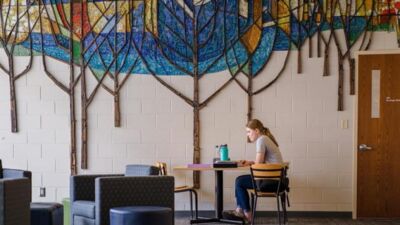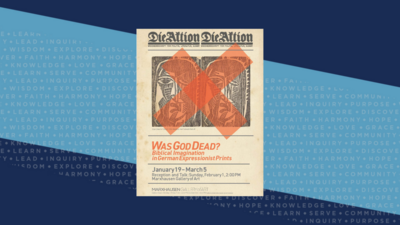Study Tips for Finals Week

It’s almost finals week at Concordia Nebraska, and with that is likely to come a renewed interest in the most efficient, practical and effective ways to study all the material one must review – or learn – for these semester-ending tests. Finishing the academic year with good scores on final exams is a goal that most, if not all students desire, but that some might not know how to achieve.
Chances are, you’ve heard that there are effective study tips out there, but where is the best place to look? Never fear – with this comprehensive list of study tips, you’ll be well-prepared to face finals week at Concordia Nebraska and finish the year strong.
Plan ahead – don't cram!
Cramming – also known as ‘trying to fit everything you have to study into one night’s worth of studying’ -- isn’t the most useful method for achieving good grades. To avoid being destined for one of these unfortunate nights, plan ahead! Make a study schedule weeks before finals begin and stick to it, even when it’s difficult. This method is somewhat analogous to working out – you’re not going to get much stronger by spending five hours in the gym in one day. Rather, you’ll become stronger over time when you show up consistently and make an appropriate effort every day for weeks or months.
The best type of cramming to do the night before a big test isn’t the studying type – instead, cram in seven to nine hours of quality sleep, and you’ll perform your best the next day.
Make your space productive
Studying smart isn’t just about how you’re doing it – it's where you’re doing it. Wherever your preferred study space is (the library, your dorm room, outside, etc.), it’s vital that it is a productive space. What does it mean to have a productive space? It means that you’re set up in an area that is free from distractions – including your cell phone – and has a noise level in which you can work well. A productive space also allows you to access the materials you need, but not those that you don’t. Typically, it’s not messy or too cramped.
Having a productive space is, therefore, an important part of the equation that leads to success and efficiency in studying.
Set SMART goals
SMART goals are more than just good goals to have. Instead, they’re Specific, Measurable, Achievable, Realistic and Time-Specific. When it comes to studying, your goals should outline specific actions you’ll take – like going to the library and eliminating distractions for two solid hours. They should be measurable, which will motivate you to achieve a certain tangible outcome. Achievable and realistic goals, furthermore, take some self-awareness to determine. You know your own strengths and weaknesses; use this knowledge to inform how long you will try to study and how much time you’ll need to put into particular sections of material. Finally, your goals must be time-specific; this is where a study schedule can be extremely useful. Outline your goals so that they line up with test dates.
Try teaching
One of the most effective ways to gauge your knowledge of a topic – as well as where there might be gaps in your knowledge – is by teaching someone (or something) else. So break out the stuffed animals or gather your friends and teach them something new. Becoming the instructor forces you to know your material well so that you can convey it to others in a way that they’ll be able to understand. Plus, if your “students” can ask questions, they may cause you to consider details that hadn’t even crossed your mind.
Utilize on-campus resources
If you’re struggling to know where to start studying, what you should study or just can’t seem to grasp the material, use your resources! At Concordia Nebraska, academic resources like online tutoring, the Academic Resource Center – located in Link Library – and professors themselves can all be valuable in offering direction and assistance. They are present for your use, so don’t be afraid to ask questions and reach out for help!
Space out – no, really!
The type of “spacing out” that’s useful for studying in college isn’t the same as the type that probably comes to mind when one hears the term. Instead of becoming distracted by your thoughts, “space out” your study sessions by sticking to a schedule. When you begin studying for an upcoming test with plenty of time to spare, you can effectively use short periods of study with several repetitions to ensure that you’ll remain focused and recall what you review. This method is more formally known as “distributed practice” and is one of the most effective ways to remember what you’ve learned both for the test and beyond.
Avoid burnout by taking intentional breaks
Finally, make sure to take care of yourself during this often-stressful season of the academic year. Although it is important to study to get the best possible grades, it’s equally as important to ensure that you are at your best both physically and mentally. So take intentional breaks – this means no scrolling through social media for a ten-minute period that turns into an hour. Rather, schedule periods of break time during which you can take a walk, read a book for fun, engage in a hobby or do something else to refresh your mind and body.
The Academic Resource Center at Concordia University, Nebraska is available to provide on-campus assistance for students from Monday to Friday, 8 a.m.-5 p.m. The ARC specializes in providing help with planning, studying, note-taking, problem-solving and more. Learn more about the ARC and its services here.
Interested in student resources at Concordia University, Nebraska?
Related Stories


